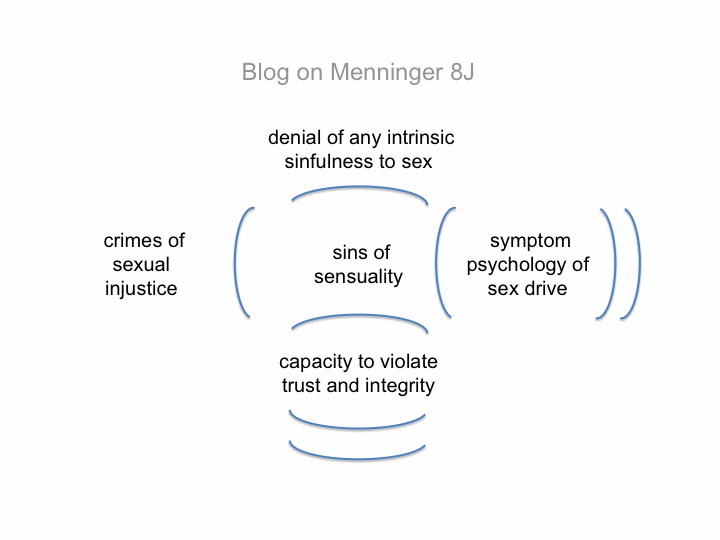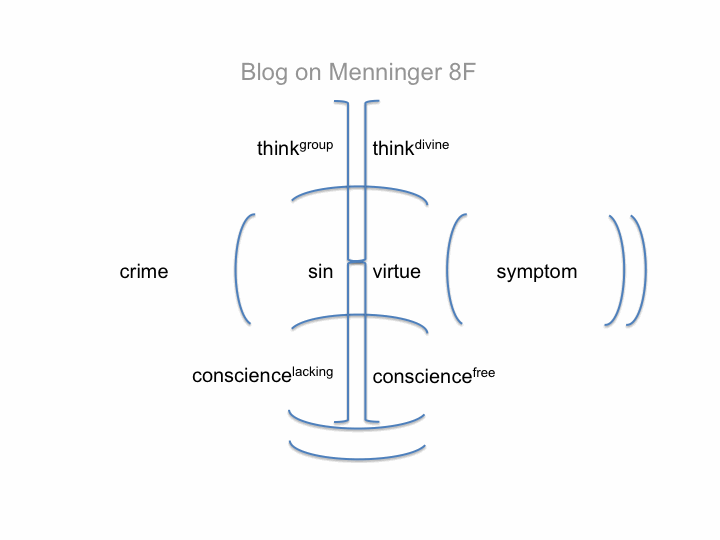Thoughts on Whatever Became of Sin? By Karl Menninger MD (1973) 8N
What about the vertical axis for gluttony – food, drinks and drugs?
Menninger associated gluttony to a destructive self-love, tending towards a “subconscious existence”. This certainly fits the “loss of conscience” that makes “sins of gluttony possible”.
Menninger did not explore the thinkgroup that puts the sins of food, drinks and drugs into context. But, like most Progressives, he made fun of quaint religious traditions of thinkdivine that forbid coffee, tea and beer.
But I have an example: Consider that great propagandizer of self-love and subconscious existence: American television (any time, from 1960 to 2012). TV thinkgroup romanticized all types of addictions, including the most important one: addiction to itself.
So for TV gluttony, the vertical axis might be “television hype for the goodness of its own programming and ads(sin of being a couch potato(destructive self love tending toward a subconscious existence))”.
Now, what about the Gluttony for Entitlements by the Central Government?


